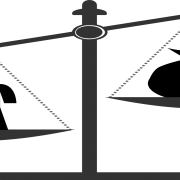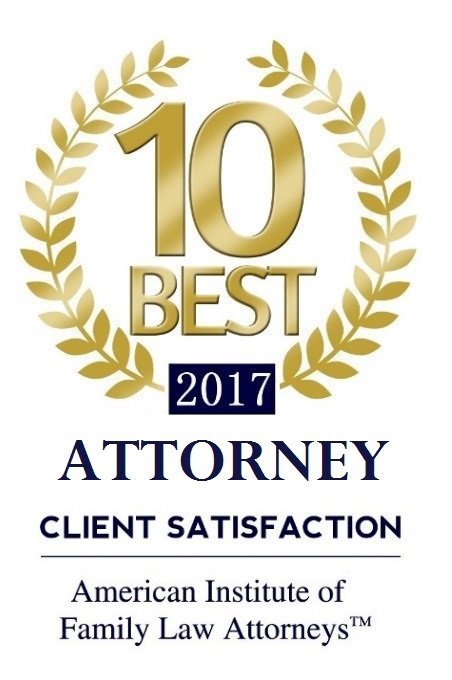How to File Bankruptcy in Maryland
What is Bankruptcy?
Bankruptcy is a debt relief process. Bankruptcy in Maryland follows state code requiring lawyers providing bankruptcy advice to identify themselves as “debt relief agencies.” It is important to note that bankruptcy is not the only process to assist individuals and businesses in the management of difficult financial situations. However, the options outside of bankruptcy are best considered after understanding the impact that a bankruptcy would have on an individual, a married couple or a business’s financial issues.
What Types of Debts Are Affected By Bankruptcies?
The reason for filing bankruptcy is to obtain a discharge of debt and personal liability on that debt. Not all debt is dischargeable:
- Child support and alimony obligations are not dischargeable in bankruptcy.
- Income tax debt that is generally less than three years past due is not dischargeable.
- Student loans are not dischargeable under most circumstances.
The majority of other unsecured debts are dischargeable, such as:
- Credit card bills
- Medical expenses
- Foreclosure remaining balances
- Car repossession remaining balances
It bears noting that the rights of secured creditors to their collateral, mortgage lenders with regards to a home and car loan lenders to the vehicles, are not terminated through a successful bankruptcy. If the mortgage isn’t getting paid, the home can be foreclosed but the unpaid balance cannot be pursued through collections as the bankruptcy discharges the personal liability, not the security interest of the lender to the collateral.
Types of Bankruptcy in Maryland
There are several types of bankruptcies authorized for use in Maryland by the United States Bankruptcy Code, but for the purposes of this discussion, we will provide details on those that usually are considered as options for individuals and small businesses.
Chapter 7 Bankruptcy
The first, and most frequently utilized type of bankruptcy, is a Chapter 7 bankruptcy, also referred to as “liquidation bankruptcy.” In the rare instance that creditors receive payments through the Chapter 7 bankruptcy process, it is through the seizure and sale of assets of the bankruptcy estate by the official in control of the bankruptcy estate, the trustee. The individuals that file bankruptcy are called the “debtor(s)”. A husband and wife can file a jointly administered case.
The use of exemptions to protect assets frequently makes the Chapter 7 process a quick and painless experience for many individuals.
The overwhelming majority of individuals who file a Chapter 7 bankruptcy do so without any liquidation or sale of assets. The reason for this is the fact that when individuals file bankruptcy they are entitled to claim exemptions, which effectively result in the prevention of the exempted assets from being considered as assets of the bankruptcy estate. In Maryland, the exemptions that individuals can assert are primarily controlled by Section 11-504 of the Court and Judicial Proceedings Article of the Annotated Code of Maryland. Exemptions apply to a portion of equity in a qualified residence, most, if not all, of qualified deferred compensation (retirement) savings, and an additional $12,000- $15,000 in personal assets and property. Married couples filing jointly have twice the exemptions, except with regards to the homestead exemption. Moreover, the assessment of the value of assets is what the assets would bring to the debtors upon sale to a third party after the payoff of any properly secured liens. Hence, many vehicles that still have an outstanding loan secured by the vehicle are of little value to a bankruptcy estate and the trustee or the equity is allowed to be exempted through applications of the exemptions identified above. The use of exemptions to protect assets frequently makes the Chapter 7 process a quick and painless experience for many individuals.
In most instances the Chapter 7 bankruptcy process, from filing to receipt of discharge, will be a four-month process. As an administrative process, it is unusual for a Chapter 7 debtor to be required to attend any hearings in the bankruptcy court. A brief meeting with the trustee, in the presence of your attorney, takes place in a local office building or, for Baltimore area bankruptcies, in a meeting room at the federal court house. The process unfolds through the application of the Bankruptcy Code to your circumstances without the need for any type of trial. The “automatic stay” of actions by creditors commences with the initial filing of the bankruptcy and will stop garnishments, foreclosures and other collection activity as soon as the filing takes place. Most consumer Chapter 7 bankruptcies result in the issuance of the Order of Discharge about 3 ½ months after the filing. While it is frequently a simple process, other options remain available for dealing with creditors.
Chapter 13 Bankruptcy
A Chapter 13 bankruptcy involves obtaining a bankruptcy discharge by making payments to the bankruptcy trustee through a confirmed Chapter 13 Plan. Depending on the reasons for the filing of a Chapter 13, the duration of plan payments usually last between 36 and 60 months. Individuals frequently utilize the Chapter 13 bankruptcy to become current on mortgage obligations to prevent a foreclosure. Since the overhaul of the Bankruptcy Code in 2005, many individuals file Chapter 13 due to the income of the debtor’s household exceeding the median income in the state in which they reside. This “Means Test” analysis requires a thorough examination of a household’s expenses and income and is impacted by the number of qualifying dependents in the household. Too much income may compel debtors to file a Chapter 13 bankruptcy even though they would not have any assets at risk in a Chapter 7 bankruptcy. Additionally, for those individuals with assets at risk of being liquidated in a Chapter 7 bankruptcy, with the established ability to properly fund a Chapter 13 plan of payments to creditors, the assets are not subject to liquidation in a Chapter 13 bankruptcy. Essentially, Chapter 13 debtors can “buy back” their assets by making payments to creditors. The confirmation process of a proposed Chapter 13 plan is not a simple process. It requires the careful management of an experienced and qualified attorney.
Alternatives to Bankruptcy Filings
There are also non-bankruptcy options. Our firm has referred many clients to credit counseling agencies. On numerous occasions, we have negotiated settlements with creditors. Which option is appropriate is not only premised upon how the law would treat each situation, but personal preferences and priorities. Our goal is to treat all clients respectfully, provide as much information as necessary to assess their needs, and to do our best to proceed as instructed to legally resolve their financial issues.










